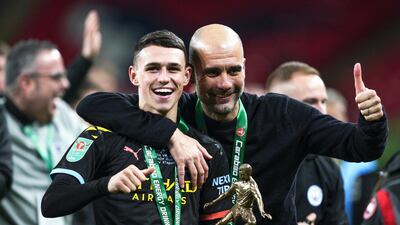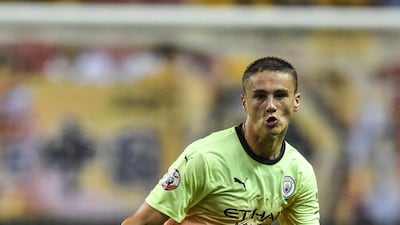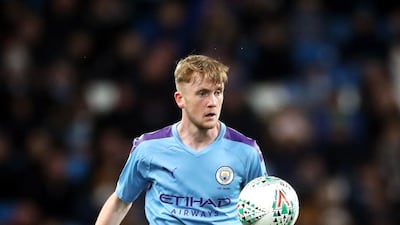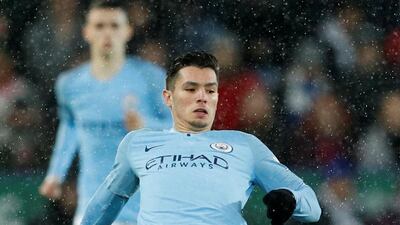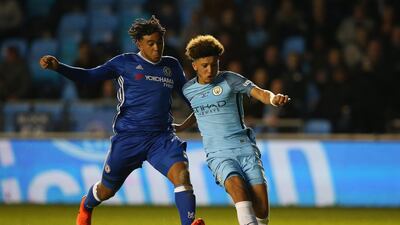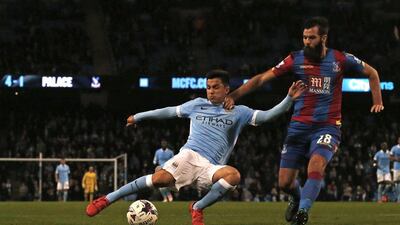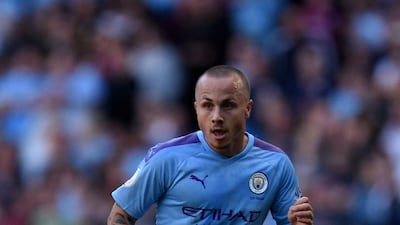Jason Wilcox is charged with producing the next generation of Pep Guardiola footballers. Or, to be more precise, those who can contribute to Manchester City’s future.
He is City’s academy director and his job is two-pronged. “To produce good players and to produce good people,” he said. “Pep chooses players who are technically great, physically great and have high levels of intelligence.”
If it can make him mentor as well as manager, he knows the qualities City’s manager requires. Wilcox feels they are universal attributes.
“Technically great covers various variables,” he said. “Some have got great agility, great pace, great power, great strength. Pep chooses players who fit into his way of playing.
"They have to be intelligent. They have to understand what they are trying to do. They have to understand their function within a team and be a good team-mate.
"If we produce players like this, when another manager comes in, he is going to be impressed.”
He cites his own career as an example: predominantly a left winger for Blackburn Rovers, Leeds United and England, he also played wing-back, centre midfield and striker. But if Guardiola appreciates players with the skills to operate in multiple positions, so do many other managers.
“There is no such thing as a Pep Guardiola player,” Wilcox said. The stereotype that Guardiola only likes diminutive Spanish passing midfielders is far from the truth. Wilcox’s remit is simply to forge fine footballers.
That comes in handy. Wilcox is fashioning players for other clubs as well. A spate of youth products came through to play for City’s first team in the 2000s, with Shaun Wright-Phillips and Micah Richards the pick.
They have been fewer in the last 12 years, but that is because standards have been raised.
It renders it harder to earn a place in a side that won five major trophies in the last two completed seasons. Phil Foden finds himself competing with Kevin de Bruyne, Ilkay Gundogan and David and Bernardo Silva.
“When we are producing players who have high levels of technical excellence, who are great people, who have high levels of intelligence and physicality, only the players with the highest levels of all will be ready for Manchester City's first team, which is able to compete against the best players in the world,” Wilcox said.

“There are very few players who will be at that level. When you look at the top four clubs in Europe or the Premier League it is an extremely big ask and it is a big challenge.”
Instead, it is about marrying ambition with realism, about calibrating hopes of what is possible.
The golden generations who come through together to win the Champions League are the anomalies. Comparisons with Manchester United’s Class of ’92 and Guardiola’s Barcelona are unhelpful.
They are the great outliers, especially among clubs who can buy some of the world’s leading talents.
Wilcox said: “If we just sat here and say, are we going to produce 11 players for Manchester City’s first team?
"The likelihood is very, very slim because the levels they have to get to are unbelievably high when the team are expected to win the Premier League, the Champions League, the FA Cup and the Carabao Cup every year.
"I don't see any teams being able to bring 11 players through in one era that happened in the past with Manchester United and Barcelona. They are the only two clubs it has happened. It is going to be highly unlikely.”
It is why he takes such heart from Foden’s progress. At 19, the midfielder has played 62 times already for City, is the youngest ever Premier League winner and was man of the match in the Carabao Cup final.
He is the flagship product of the academy but, if Wilcox has his way, the first in a line. “Phil's journey has been incredible,” he said. “When you look at a player who has high levels of technical ability, physically great, technically great, he ticks those boxes. Those kind of players can play for any manager, anywhere in the world.
"Our aim is to produce more Phil Fodens. We have internal targets that we are trying to produce as many players for our first team. We are not shying away from that.”
And yet Wilcox’s task involves preaching patience. The temptation is to expect everything of Foden immediately.
“When you are 18 and 19, it is very difficult to compete at this high level, game in, game out,” Wilcox said. “When you look around the [top of the] Premier League in this age group there is probably only Trent Alexander-Arnold who is a regular. That tells its own story.

"When you have got players who have played in World Cup finals and European Cup finals, the younger players have to be patient and play their turn.
"When you see how Phil plays, every young player has to show this patience. I don't think you are going to win the Champions League with a team of 18-year-olds.”
Foden represents the ideal, a lifelong City fan who has been on their books for more than a decade. “It would be amazing if we had 11 Manchester boys in the first team but the reality is it is very unlikely,” Wilcox said.
“We are trying to create Manchester City fans from the age of nine. There is no better feeling than a group of players who are defending the badge and wanting to play. We have also got to look nationally and internationally.”
The other youth-team products to excel this season are cases in point. There is defender Taylor Harwood-Bellis, another native of Stockport, and midfielder Tommy Doyle, the grandson of two City greats, but also the assured Spanish centre-back Eric Garcia.
His compatriot Brahim Diaz was sold to Real Madrid last season and others who benefited from City’s schooling are scattered around Europe: Jadon Sancho at Borussia Dortmund, Angelino at RB Leipzig, Pablo Maffeo at Girona, Manu Garcia at Sporting Gijon and Kelechi Iheanacho at Leicester.
Wilcox’s job is about giving a grounding and taking a long-term view. “We look on our games at a weekend as a development ground,” he said. Those various objectives mean that results are the not the sole criterion of success.
City are runaway leaders of the Under-18 league. Thereafter, they loan out some of their younger talents while are willing to fast-track others, pitting them against more seasoned professionals. It is a reason why they are only eighth in Premier League 2.
“We would highlight certain competitions,” Wilcox said. “We want to test ourselves against the best.”
The FA Youth Cup is one priority and City were in the semi-finals, drawn against either Blackburn or Arsenal, when football ground to a halt. But they exited the Uefa Youth League in the group stages, defeats to Atalanta and Dinamo Zagreb coming at a cost.
“This year's Champions League campaign was disappointing,” Wilcox admitted. “We should have progressed and done better. They have had a poor campaign but we need to learn from that.
"The season is not make or break in the Champions League but we want to give our players as many great experiences as possible.” And the ultimate experiences, as Foden can testify, are in City’s senior side.
